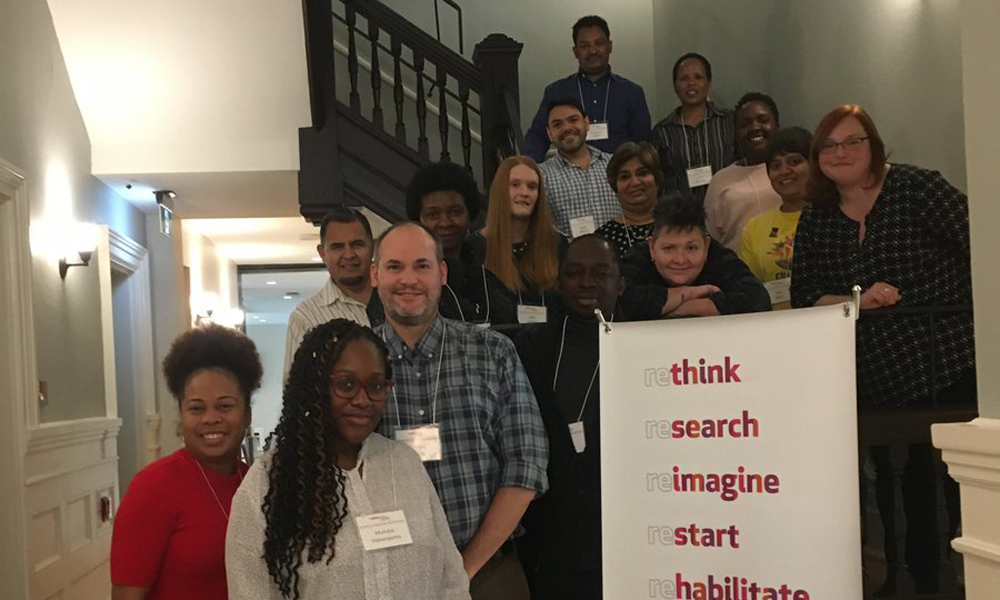Many people living with HIV experience higher rates of depression and anxiety…
Seeking care for mental health issues can often be a challenging experience, for a range of reasons including accessibility, stigma and appropriateness of care. The first people you reach out to can profoundly shape and set the tone of your overall experience. Though awareness around mental illness and supports for mental health and well-being have grown positively over the last number of years, many of us do not have the tools or language to offer the most appropriate support when someone tells us they are struggling or are in distress.
This challenge is heightened in the HIV community. Many people living with HIV experience higher rates of depression and anxiety, and accessing ongoing support can be difficult. Those living with HIV may be less likely to access traditional community-based mental health organizations for fear of encountering stigma and a lack of understanding regarding their HIV status. Canadians’ attitudes and opinions toward people living with HIV were assessed in a national study in 2012. Seventy-one percent of Canadians have little tendency to stigmatize people living with HIV, although 22% hold a moderate degree of stigma toward people with HIV and another 7% exhibit a high level of stigma. These stigmas combined further alienate and create barriers for people living with HIV.
Mental health professionals and frontline staff in mental health organizations do not receive mandatory training related to working with people living with HIV – but a national organization, based in Toronto, is going to change this. Through the re-energized Positive Outlook (2.0) Programand with support from pharmaceutical company ViiV Healthcare, Realizeis working to build the capacity of frontline workers in community-based HIV organizations and mental health organizations. Through a series of workshops across Canada, Realize(formerly the Canadian Working Group on HIV and Rehabilitation) will help these frontline workers develop the skills they need to be able to work more compassionately with clients who are experiencing mental concerns and living with HIV.
“By including both of these populations, this training will bridge the gaps between the HIV and mental health sectors, and will build possible networks and increase capacity to better support people living with HIV who may approach mental health organizations seeking supports,” says Tammy Yates, Executive Director of Realize. “The intention of training staff members from these organizations,” she says, “is to equip them with a better understanding of the needs of people living with HIV, and ultimately to reduce stigma and [possibly give clients] better access to community-based mental health organizations.”
Positive Outlook 2.0 will build on the momentum started during the rollout of the workshops that Realize conducted in 2018, in which 240 participants from across the country were trained. The workshops, which are continuing in 2019 and will occur once each in four different areas of the country, will engage local co-facilitators from relevant community agencies in each of the areas, to provide an enhanced understanding of local mental health services. In addition to providing appropriate information about the local service context, this setup also gives attendees an opportunity to develop networks and connections to facilitate more appropriate referrals.
“Working with Realize on Positive Outlook 2.0 will mean accessible, compassionate and long-term care for people living with HIV and mental health issues across the country,” says Sara Leclerc, General Manager of ViiV Healthcare Canada.
For more info, check out: www.realizecanada.org & www.viivhealthcare.ca.
TAMMY C. YATES is the Executive Director of Realize. In 2015, she became the first black female Executive Director of a national organization in Canada’s HIV response. She has worked for over thirteen years in the field of program management. Prior to joining Realize, Tammy was the National Program Manager of the United Nations Population Fund (UNFPA) Trinidad & Tobago Branch Office. She has extensive experience in Gender & Development and Sexual & Reproductive Health, including HIV/AIDS, having worked previously as a Program Officer with the Secretariat of the Caribbean Regional Network of Persons Living With HIV (CRN+) and serving as Chair of the Gender Theme Group of the United Nations System in Trinidad & Tobago. She is a graduate of Wolfson College, Cambridge University, England and the University of the West Indies, St. Augustine, Trinidad.






POST A COMMENT